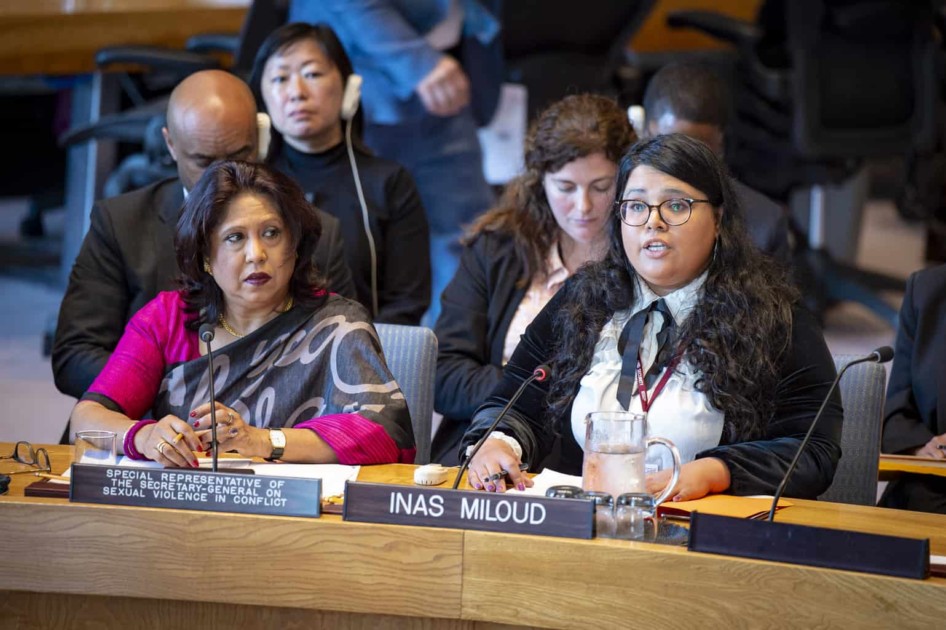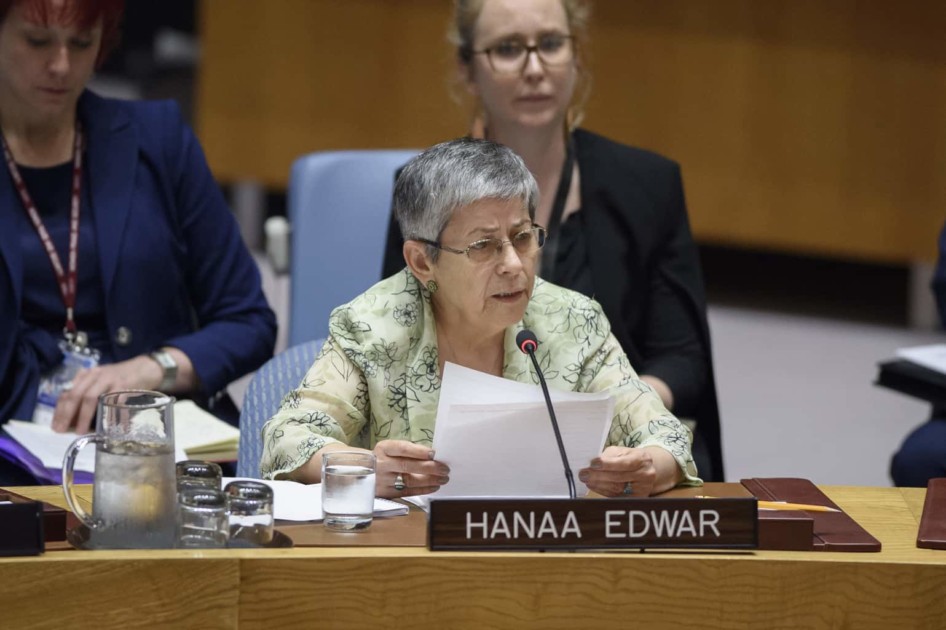Protection of Civilians
Protection broadly encompasses activities aimed at obtaining full respect for the rights of all individuals in accordance with international law, including international humanitarian, human rights, and refugee law. During protracted armed conflict, civilians, particularly women, have increasingly become the victims of violence and insecurity. In 1999, the Security Council first requested a dedicated report by the UN Secretary-General on PoC, followed by the adoption of Security Council Resolution 1265 (1999), which recognized the need for protection against specific threats targeted at civilians in armed conflict and outlined operational obligations to highlight ways to protect civilian populations experiencing armed conflict.
The NGOWG WPS focuses specifically on women’s protection in armed conflict, requesting the Security Council to recognize the broad range of ways women are affected by conflict and to harness international law to mandate needed protection in peacekeeping missions. The Council is also requested to focus on how to concretely implement existing norms related to the protection of civilians, including through the resources available in the Protection of Civilians Aide Memoire (S/PRST/2010/25), to ensure women’s protection. The NGOWG WPS advocates for the deployment of Women’s Protection Advisers as well as the provision of a number of services to female survivors of conflict, including psychosocial services for survivors of sexual violence.
Protection of Civilians
Protection broadly encompasses activities aimed at obtaining full respect for the rights of all individuals in accordance with international law, including international humanitarian, human rights, and refugee law. During protracted armed conflict, civilians, particularly women, have increasingly become the victims of violence and insecurity. In 1999, the Security Council first requested a dedicated report by the UN Secretary-General on PoC, followed by the adoption of Security Council Resolution 1265 (1999), which recognized the need for protection against specific threats targeted at civilians in armed conflict and outlined operational obligations to highlight ways to protect civilian populations experiencing armed conflict.
The NGOWG WPS focuses specifically on women’s protection in armed conflict, requesting the Security Council to recognize the broad range of ways women are affected by conflict and to harness international law to mandate needed protection in peacekeeping missions. The Council is also requested to focus on how to concretely implement existing norms related to the protection of civilians, including through the resources available in the Protection of Civilians Aide Memoire (S/PRST/2010/25), to ensure women’s protection. The NGOWG WPS advocates for the deployment of Women’s Protection Advisers as well as the provision of a number of services to female survivors of conflict, including psychosocial services for survivors of sexual violence.
Current and Past Recommendations to the UN Security Council (Monthly Action Points)
In the expected open debate on protection of civilians (POC), the Security Council should mainstream gender throughout its discussion and ensure that the meaningful participation of women and women’s CSOs are at the forefront of any POC strategy. The Council’s work must be grounded in age, gender, and disability-sensitive conflict analysis that contributes to the development of POC strategies and responses that are non-discriminatory and appropriate for all survivors and victims. The Council should encourage the participation and protection of women human rights defenders (WHRDs), peace activists, and survivors with full consideration of their rights, safety, dignity, and the long-term needs of those individuals and their families. The Council should:
- Demand cessation of attacks against civilians, healthcare workers and humanitarian actors, which violate international humanitarian, criminal and human rights law and Security Council Resolution 2286 (2016).
- Urge Member States and the UN system to prioritize the full range of medical, legal, psychosocial and livelihood services to women affected by armed conflict and post-conflict situations, including essential sexual and reproductive health services in line with Resolution 2122 (2013).
- Support the Secretary-General’s call that national authorities designate humanitarian workers as essential, given their direct and indispensable role in delivering life-saving assistance.
- Emphasize the importance of providing financial and technical support to local women’s civil society groups providing humanitarian assistance to civilians in order to ensure access to local communities in need.
- Urge Member States and the UN system, including peace operations, to actively support women’s participation and leadership in pandemic decision-making and response planning and ensure there are consistent, regular and ongoing consultations with civil society, including women-led organizations, and resourcing for frontline women’s civil society organizations.
- Encourage host Governments to develop and implement nationally owned multi-sectoral strategies for preventing and responding to SGBV, including effective access to justice.
In the expected open debate on protection of civilians (POC), the Security Council should mainstream gender throughout its discussion and ensure that the meaningful participation of women and women’s CSOs are at the forefront of any POC strategy. The Council’s work must be grounded in age, gender, and disability-sensitive conflict analysis that contributes to the development of POC strategies and responses that are non-discriminatory and appropriate for all survivors and victims. The Council should encourage the participation and protection of women human rights defenders (WHRDs), peace activists, and survivors with full consideration of their rights, safety, dignity, and the long-term needs of those individuals and their families. The Council should:
- Demand cessation of attacks against civilians, healthcare workers and humanitarian actors, which violate international humanitarian, criminal and human rights law and Security Council Resolution 2286 (2016).
- Urge Member States and the UN system to prioritize the full range of medical, legal, psychosocial and livelihood services to women affected by armed conflict and post-conflict situations, including essential sexual and reproductive health services in line with Resolution 2122 (2013).
- Support the Secretary-General’s call that national authorities designate humanitarian workers as essential, given their direct and indispensable role in delivering life-saving assistance.
- Emphasize the importance of providing financial and technical support to local women’s civil society groups providing humanitarian assistance to civilians in order to ensure access to local communities in need.
- Urge Member States and the UN system, including peace operations, to actively support women’s participation and leadership in pandemic decision-making and response planning and ensure there are consistent, regular and ongoing consultations with civil society, including women-led organizations, and resourcing for frontline women’s civil society organizations.
- Encourage host Governments to develop and implement nationally owned multi-sectoral strategies for preventing and responding to SGBV, including effective access to justice.
Relevant Resources









